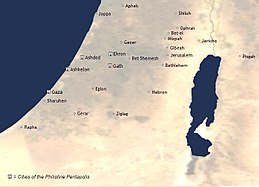
Narratives, Palestine and Israel
Primary orality, a period before printed writing, was the way of transmitting stories and the culture and tradition of people through narration. We live in modern printed culture and now a culture called “post-narrative” by Byung Chul Han emerges.
Says Han: “Today everyone talks about narrative. The paradox is that the inflationary use of narratives reveals a crisis of narration itself”, he says at the beginning of his book “The Crisis of Narration”, establishing an opposition between narratives and narration.
Prophets and oracles were responsible for narratives in the period before writing. It is worth remembering that scribes and clay tablets were present in archaic cultures, however, it was the narrative that sustained traditions in oral cultures, including original ones.
A modern interpretation, made by Walter Ong, disciple of Marshal McLuhan, is that myths were used as a mneumotechnical process, that is, “hooks” so that the narrative did not deviate from the initial narrative, maintaining cultures and traditions, thus great works of Western culture such as Iliad and Odyssey can be reread in this aspect.
The prophets do not differentiate themselves from these cultic aspects, they have the pretension or in fact they can be divine revelations, since numerous facts in these narratives reveal divine intervention, the departure of Abram (only later to be called Canaan) from the region of Chaldea, giving rise to the Hebrew people, which meant on the other side of the river, until the arrival of the region where his son Isaac will be born, but he will also have a son with the slave Hagar, called Ishmael, and only later will he have a son with Sarah, Isaac who will have two sons Esau and Jacob (later called Israel, he who wrestled with God).
Already in the mother’s womb the two were fighting and the biblical narrative says, Genesis 25:23: “And the LORD said to her: Two nations are in your womb, and two peoples will be divided from your womb: one people will be stronger than the other. other people, and the greatest will serve the least”.
and the biblical narrative says, Genesis 25:23: “And the LORD said to her: Two nations are in your womb, and two peoples will be divided from your womb: one people will be stronger than the other. other people, and the greatest will serve the least”.
From conception, the biblical narrative reveals two people in struggle, Rebekah was sterile and when she gave birth to the twins, Esau was born first for a few minutes and was supposed to inherit the tribes, but Jacob, using a trick of pretending to be his brother who was hairy, went to his father who is almost blind and asks him to bless him, which he does, but later realizing that he would have to fight with his brother, says the narrative, in a region called Jabbok ford (a tributary of the Jordan) he fights with an angel for God to bless him, and from then on he is called Israel, meaning one who fights with God.
However, the Ishmaelites will continue to exist and are not to be confused with the Palestinians, who come from the ancient people called Philistines, initially they were on the southwest coast of Canaan, forming Philistia, despite having adopted the local Canaanite culture, studies point to an Indo-European origin for countless words and even in the first wars they already knew how to make steel, while the Israelites still mastered bronze (in the photo the map from 830 BC).
«Origem dos filisteus pode ser finalmente revelada por DNA antigo». National Geographic. 15 de julho de 2019 (in portuguese).









